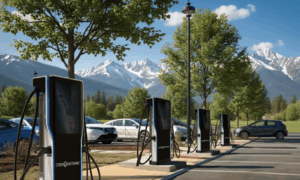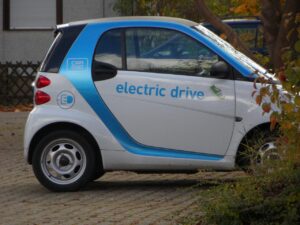
Home / EV Charging News / How Electric Cars Can Help Combat Climate Change: Exploring the role of electric cars in reducing greenhouse gas emissions
As climate change continues to impact the planet, reducing greenhouse gas emissions has become a critical priority. One significant contributor to these emissions is transportation. Electric cars have been touted as a potential solution to reduce these emissions. In this article, we will explore the role of electric cars in reducing greenhouse gas emissions and how they can help combat climate change.
Before we delve into the role of electric cars in reducing greenhouse gas emissions, it’s essential to understand what they are. Electric cars, also known as electric vehicles (EVs), are cars that run entirely or partially on electric power instead of gasoline or diesel fuel. They are powered by batteries that can be recharged using an external power source, such as a charging station or a home electrical outlet.
Electric cars can significantly reduce greenhouse gas emissions compared to traditional gasoline-powered vehicles. Here are some of the ways electric cars help combat climate change:
In addition to reducing greenhouse gas emissions, electric cars have several other benefits. Here are some of them:
While electric cars have many benefits, there are still barriers to their widespread adoption. Here are some ways to increase the adoption of electric cars:
The future of electric cars looks bright. As battery technology continues to improve, the range of electric cars will increase, and charging times will decrease. This will make electric cars more convenient for drivers and increase their adoption. Additionally, as renewable energy sources become more prevalent, electric cars will become even more environmentally friendly.
Electric cars are an essential tool in the fight against climate change. They reduce greenhouse gas emissions, improve air quality, and reduce our reliance on fossil fuels. While there are still barriers to their adoption, governments and private companies can work together to increase the availability of charging infrastructure, improve battery technology, and provide financial incentives to electric car buyers. As we continue to transition to renewable energy sources, electric cars will play a crucial role in creating a more sustainable future.



